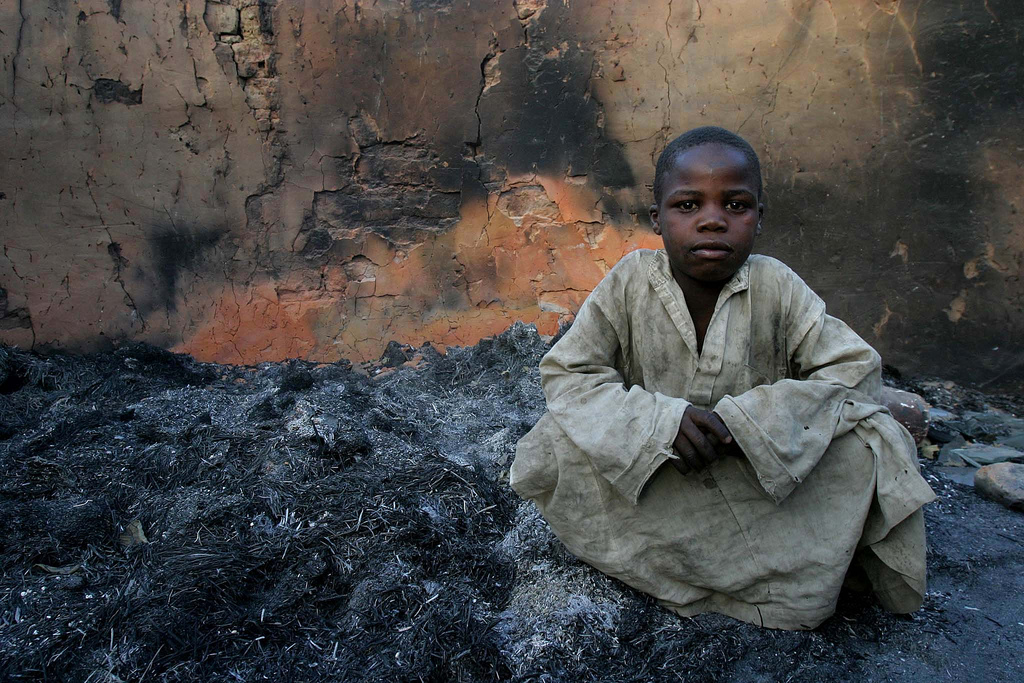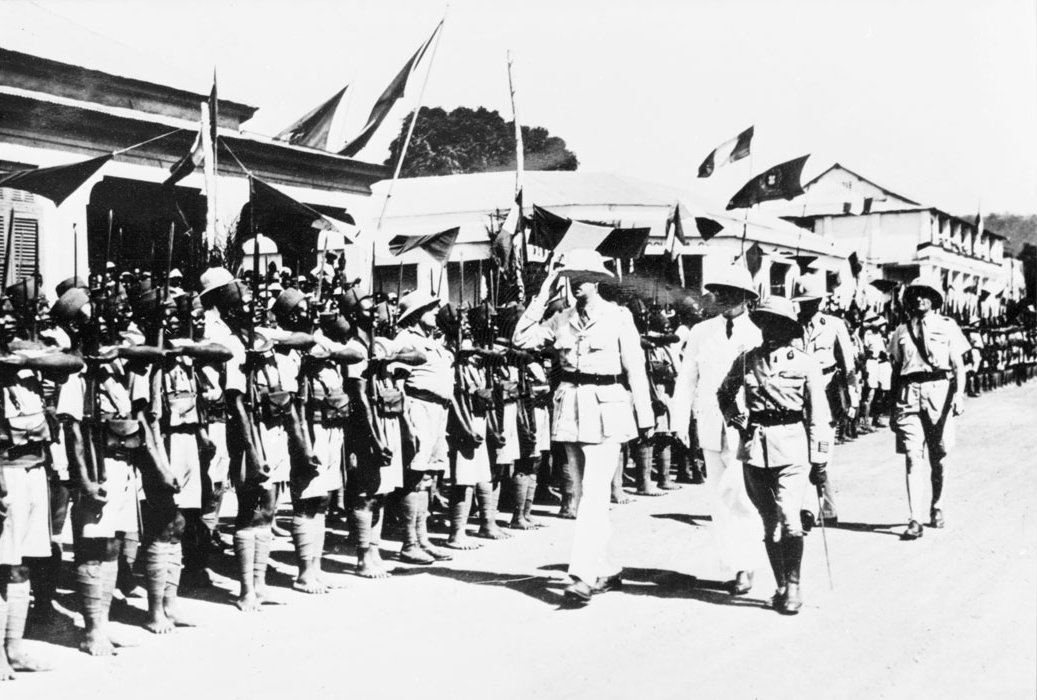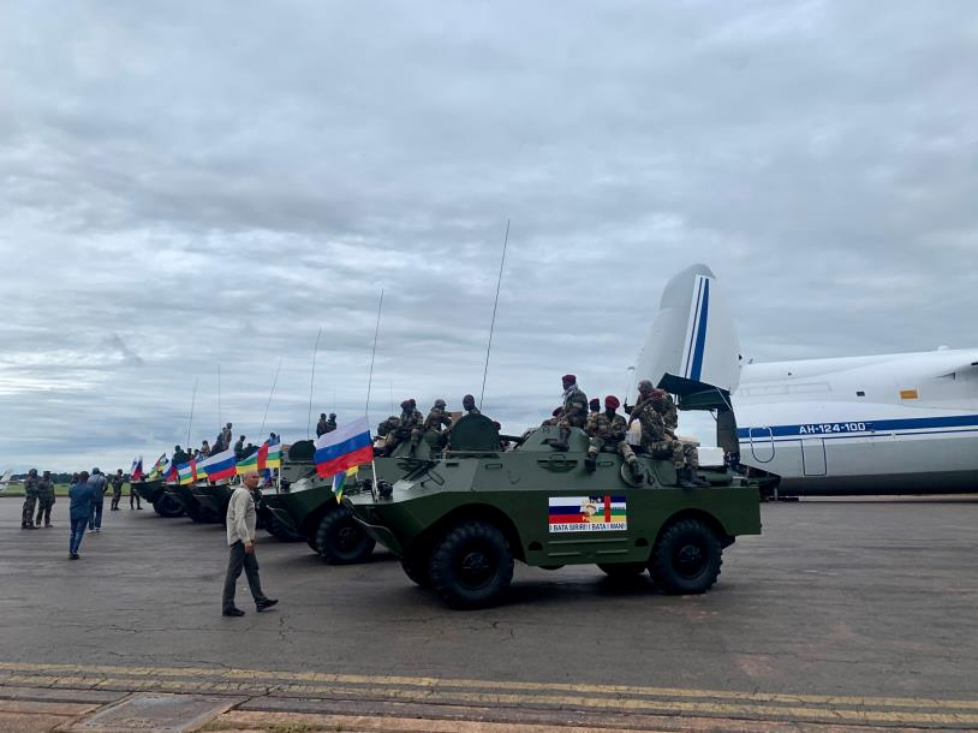|
United Nations Security Council Resolution 1201
United Nations Security Council resolution 1201, adopted unanimously on 15 October 1998, after reaffirming resolutions United Nations Security Council Resolution 1125, 1125 (1997), United Nations Security Council Resolution 1136, 1136 (1997), United Nations Security Council Resolution 1152, 1152 (1998), United Nations Security Council Resolution 1155, 1155 (1998), United Nations Security Council Resolution 1159, 1159 (1998) and United Nations Security Council Resolution 1182, 1182 (1998) regarding the situation in the Central African Republic, the Council extended the mandate of the United Nations Mission in the Central African Republic (MINURCA) until 28 February 1999. The Central African Republic had made considerable progress in implementing the Bangui Agreements and major political and economic reforms. There was also an operational plan for the organisation of elections, which were to be supported by the MINURCA mission. The Council welcomed the decision of the authorities in ... [...More Info...] [...Related Items...] OR: [Wikipedia] [Google] [Baidu] |
Birao
Birao is the capital of Vakaga, one of the 14 prefectures of the Central African Republic and was an administrative post in the colony of Ubangui-Shari. In March 2007, the town was almost completely burnt down in the fighting between rebels and government troops in the area. History Under Bokassa Jean-Bédel Bokassa, the military ruler of the Central African Republic in the 1960s and 1970s, sent the family of Alexandre Banza to Birao after Banza attempted to overthrow him. Birao was isolated from the rest of the country and Banza's family was monitored by Bokassa. Banza's wife and nine children were kept in Birao until 1970. Beouane and Goboulo, Banza's two brothers, were also kept in Birao, but were soon imprisoned. Birao was considered an undesirable place to be sent; the "disciplinary cells" in the Ngaragba Prison run by Bokassa were called Birao. Later, after Bokassa had fallen from power and his execution sentence had been commuted, sending Bokassa to Birao was considered ... [...More Info...] [...Related Items...] OR: [Wikipedia] [Google] [Baidu] |
Mandate (international Law)
In international law, a mandate is a binding obligation issued from an inter-governmental organization (e.g. the United Nations) to a country which is bound to follow the instructions of the organization. Before the creation of the United Nations, all mandates were issued from the League of Nations. An example of such a mandate would be Australian New Guinea, which is officially the Territory of Papua. See also * UN Mandate * League of Nations mandate A League of Nations mandate was a legal status for certain territories transferred from the control of one country to another following World War I, or the legal instruments that contained the internationally agreed-upon terms for administ ... International law Law of obligations {{International-law-stub ... [...More Info...] [...Related Items...] OR: [Wikipedia] [Google] [Baidu] |
1998 In The Central African Republic
1998 was designated as the ''International Year of the Ocean''. Events January * January 6 – The ''Lunar Prospector'' spacecraft is launched into orbit around the Moon, and later finds evidence for frozen water, in soil in permanently shadowed craters near the Moon's poles. * January 11 – Over 100 people are killed in the Sidi-Hamed massacre in Algeria. * January 12 – Nineteen European nations agree to forbid human cloning. * January 17 – The ''Drudge Report'' breaks the story about U.S. President Bill Clinton's alleged affair with Monica Lewinsky, which will lead to the House of Representatives' impeachment of him. February * February 3 – Cavalese cable car disaster: A United States military pilot causes the deaths of 20 people near Trento, Italy, when his low-flying EA-6B Prowler severs the cable of a cable-car. * February 4 – The 5.9 Afghanistan earthquake shakes the Takhar Province with a maximum Mercalli intensity of VII (''Very strong''). With up to ... [...More Info...] [...Related Items...] OR: [Wikipedia] [Google] [Baidu] |
1998 United Nations Security Council Resolutions
1998 was designated as the ''International Year of the Ocean''. Events January * January 6 – The '' Lunar Prospector'' spacecraft is launched into orbit around the Moon, and later finds evidence for frozen water, in soil in permanently shadowed craters near the Moon's poles. * January 11 – Over 100 people are killed in the Sidi-Hamed massacre in Algeria. * January 12 – Nineteen European nations agree to forbid human cloning. * January 17 – The '' Drudge Report'' breaks the story about U.S. President Bill Clinton's alleged affair with Monica Lewinsky, which will lead to the House of Representatives' impeachment of him. February * February 3 – Cavalese cable car disaster: A United States military pilot causes the deaths of 20 people near Trento, Italy, when his low-flying EA-6B Prowler severs the cable of a cable-car. * February 4 – The 5.9 Afghanistan earthquake shakes the Takhar Province with a maximum Mercalli intensity of VII (''Very strong''). With u ... [...More Info...] [...Related Items...] OR: [Wikipedia] [Google] [Baidu] |
List Of United Nations Security Council Resolutions 1201 To 1300
This is a list of United Nations Security Council Resolutions 1201 to 1300 adopted between 15 October 1998 and 31 May 2000. See also * Lists of United Nations Security Council resolutions * List of United Nations Security Council Resolutions 1101 to 1200 * List of United Nations Security Council Resolutions 1301 to 1400 This is a list of United Nations Security Council Resolutions 1301 to 1400 adopted between 31 May 2000 and 28 March 2002. See also * Lists of United Nations Security Council resolutions * List of United Nations Security Council Resolution ... {{United Nations *1201 ... [...More Info...] [...Related Items...] OR: [Wikipedia] [Google] [Baidu] |
History Of The Central African Republic
The history of the Central African Republic is roughly composed of four distinct periods. The earliest period of settlement began around 10,000 years ago when nomadic people first began to settle, farm and fish in the region. The next period began around 10,000 years prior. Early history Approximately 10,000 years ago, desertification forced hunter-gatherer societies south into the Sahel regions of northern Central Africa, where some groups settled and began farming as part of the Neolithic Revolution.The History of Central and Eastern Africa, Amy McKenna, 2011, pg. 4 Initial farming of white yam progressed into millet and sorghum, and then later the domestication of African oil palm improved the groups' nutrition and allowed for expansion of the local populations. Bananas arrived in the region and added an important source of carbohydrates to the diet; they were also used in the production of alcohol. This Agricultural Revolution, combined with a "Fish-stew Revolution", in wh ... [...More Info...] [...Related Items...] OR: [Wikipedia] [Google] [Baidu] |
Military Of The Central African Republic
The Central African Armed Forces (french: Forces armées centrafricaines; FACA) are the armed forces of the Central African Republic and have been barely functional since the outbreak of the civil war in 2012. Today they are among the world's weakest armed forces, dependent on international support to provide security in the country. In recent years the government has struggled to form a unified national army. It consists of the Ground Force (which includes the air service), the gendarmerie, and the National Police. Its disloyalty to the president came to the fore during the mutinies in 1996–1997, and since then has faced internal problems. It has been strongly criticised by human rights organisations due to terrorism, including killings, torture and sexual violence. In 2013 when militants of the Séléka rebel coalition seized power and overthrew President Bozizé they executed many FACA troops. History Role of military in domestic politics The military has played an impor ... [...More Info...] [...Related Items...] OR: [Wikipedia] [Google] [Baidu] |
Kofi Annan
Kofi Atta Annan (; 8 April 193818 August 2018) was a Ghanaian diplomat who served as the seventh secretary-general of the United Nations from 1997 to 2006. Annan and the UN were the co-recipients of the 2001 Nobel Peace Prize. He was the founder and chairman of the Kofi Annan Foundation, as well as chairman of The Elders, an international organisation founded by Nelson Mandela. Annan studied economics at Macalester College, international relations at the Graduate Institute Geneva, and management at MIT. Annan joined the UN in 1962, working for the World Health Organization's Geneva office. He went on to work in several capacities at the UN Headquarters including serving as the Under-Secretary-General for peacekeeping between March 1992 and December 1996. He was appointed secretary-general on 13 December 1996 by the Security Council, and later confirmed by the General Assembly, making him the first office holder to be elected from the UN staff itself. He was re-elected for a s ... [...More Info...] [...Related Items...] OR: [Wikipedia] [Google] [Baidu] |
Elections In The Central African Republic
The Central African Republic elects on the national level a head of state – the president – and a legislature. The president is elected for a five-year term by the people. The National Assembly (''Assemblée Nationale'') has 105 members, elected for a five-year term using the two-round (or Run-off) system. The country has a multi-party system, with two or three strong parties and a third party that is electorally successful. See also *Electoral calendar *Electoral system An electoral system or voting system is a set of rules that determine how elections and Referendum, referendums are conducted and how their results are determined. Electoral systems are used in politics to elect governments, while non-political ... * 2020 Central African general election External linksAdam Carr's Election Archive [...More Info...] [...Related Items...] OR: [Wikipedia] [Google] [Baidu] |
United Nations Security Council Resolution 1125
United Nations Security Council resolution 1125, adopted unanimously on 6 August 1997, after expressing concern at the situation facing the Central African Republic, the Council authorised the continuation of the Inter-African Mission to Monitor the Implementation of the Bangui Agreements (MISAB) mission in the country for a further three months. Background In 1996, there were three successive mutinies by elements of the armed forces in the Central African Republic which resulted in a political and military crisis. The Bangui Agreements were signed by the President of the Central African Republic Ange-Félix Patassé and rebel forces in the capital Bangui and an inter-African force (MISAB) was established to restore peace and security in the country and to monitor the implementation of the Bangui Agreements. Resolution The Security Council determined that the situation in the Central African Republic constituted a threat to international peace and security and welcomed the e ... [...More Info...] [...Related Items...] OR: [Wikipedia] [Google] [Baidu] |
United Nations Mission In The Central African Republic
The United Nations Mission in the Central African Republic, more commonly known as MINURCA (which is formed from the initials of its French name ''Mission des Nations Unies en République Centrafricaine'') was a United Nations peacekeeping force in the Central African Republic. The 1350-troop mission was established by the United Nations Security Council Resolution 1159 in March 1998. It was replaced in 2000 after the Central African Republic conducted two peaceful elections, with the entirely civilian composed UN Peace-Building Support Office in the Central African Republic (BONUCA). History Ange-Félix Patassé came to power in October 1993 following national elections; he was the first democratically elected president of the Central African Republic. He inherited a nearly bankrupt government and there was civil unrest by unpaid civil servants. Military officers were also unpaid, and some of them accused him of unequal treatment of officers from different ethnic groups. The di ... [...More Info...] [...Related Items...] OR: [Wikipedia] [Google] [Baidu] |
Central African Republic
The Central African Republic (CAR; ; , RCA; , or , ) is a landlocked country in Central Africa. It is bordered by Chad to the north, Sudan to the northeast, South Sudan to the southeast, the DR Congo to the south, the Republic of the Congo to the southwest, and Cameroon to the west. The Central African Republic covers a land area of about . , it had an estimated population of around million. , the Central African Republic is the scene of a civil war, ongoing since 2012. Most of the Central African Republic consists of Sudano-Guinean savannas, but the country also includes a Sahelo- Sudanian zone in the north and an equatorial forest zone in the south. Two-thirds of the country is within the Ubangi River basin (which flows into the Congo), while the remaining third lies in the basin of the Chari, which flows into Lake Chad. What is today the Central African Republic has been inhabited for millennia; however, the country's current borders were established by ... [...More Info...] [...Related Items...] OR: [Wikipedia] [Google] [Baidu] |




